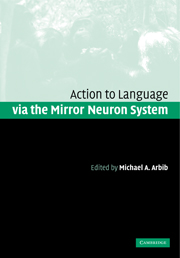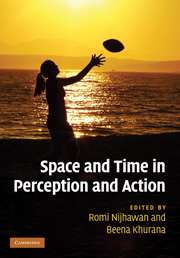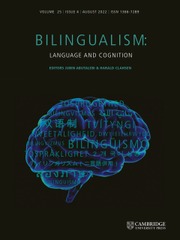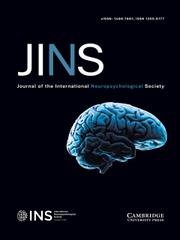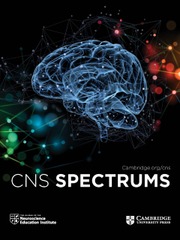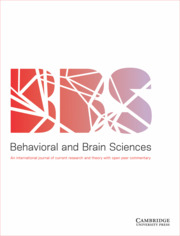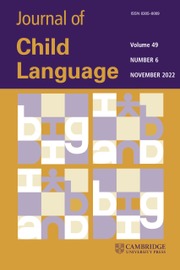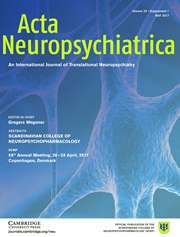Action to Language via the Mirror Neuron System
$76.99 USD
- Editor: Michael A. Arbib, University of Southern California
- Date Published: November 2006
- availability: This ISBN is for an eBook version which is distributed on our behalf by a third party.
- format: Adobe eBook Reader
- isbn: 9780511242984
Find out more about Cambridge eBooks
$
76.99 USD
Adobe eBook Reader
Other available formats:
Hardback, Paperback
Looking for an inspection copy?
This title is not currently available on inspection
-
Mirror neurons may hold the brain's key to social interaction - each coding not only a particular action or emotion but also the recognition of that action or emotion in others. The Mirror System Hypothesis adds an evolutionary arrow to the story - from the mirror system for hand actions, shared with monkeys and chimpanzees, to the uniquely human mirror system for language. In this accessible volume, experts from child development, computer science, linguistics, neuroscience, primatology and robotics present and analyse the mirror system and show how studies of action and language can illuminate each other. Topics discussed in the fifteen chapters include: what do chimpanzees and humans have in common? Does the human capability for language rest on brain mechanisms shared with other animals? How do human infants acquire language? What can be learned from imaging the human brain? How are sign- and spoken-language related? Will robots learn to act and speak like humans?
Read more- Places action, language and perception in a shared framework
- Provides an intriguing perspective on brain mechanisms for language
- Experts in child development, computer science, linguistics, neuroscience, primatology and robotics make their ideas accessible to a wide interdisciplinary audience
Customer reviews
Not yet reviewed
Be the first to review
Review was not posted due to profanity
×Product details
- Date Published: November 2006
- format: Adobe eBook Reader
- isbn: 9780511242984
- availability: This ISBN is for an eBook version which is distributed on our behalf by a third party.
Table of Contents
Preface
Part I. Two Perspectives:
1. The mirror system hypothesis on the linkage of action and languages Michael Arbib
2. The origin and evolution of language: a plausible, strong-AI account Jerry Hobbs
Part II. Brain, Evolution and Comparative Analysis:
3. Cognition, imitation and culture in the great apes Craig Stanford
4. The signer as an embodied mirror neuron: neural systems underlying sign language and action Karen Emmorey
5. Neural homologies and the grounding of neurolinguistics Michael Arbib and Mihail Bota
Part III. Dynamical Systems in Action and Language:
6. Dynamical systems: brain, body and imitation Stefan Schaal
7. The role of vocal tract gestural action units in understanding the evolution of phonology Louis Goldstein, Dani Byrd and Elliot Saltzman
8. Lending a helping hand to hearing: a motor theory of speech perception Jeremy I. Skipper, Howard C. Nusbaum and Steven L. Small
Part IV. From Mirror System to Syntax and Theory of Mind:
9. Attention and the minimal subscene Laurent Itti and Michael Arbib
10. Action verbs, argument structure constructions, and the mirror neuron system David Kemmerer
11. Linguistic corpora and theory of mind Andrew Gordon
Part V. Development of Action and Language:
12. The development of grasping and the mirror system Erhan Oztop, Nina Bradley and Michael Arbib
13. Development of goal-directed imitation, object manipulation and language in humans and robots Iona D. Goga and Aude Billard
14. Affordances, effectivities and the mirror system in child development Patricia Zukow-Goldring
15. Implications of mirror neurons for the ontogeny and phylogeny of cultural processes: the examples of tools and language Patricia Greenfield.
Sorry, this resource is locked
Please register or sign in to request access. If you are having problems accessing these resources please email [email protected]
Register Sign in» Proceed
You are now leaving the Cambridge University Press website. Your eBook purchase and download will be completed by our partner www.ebooks.com. Please see the permission section of the www.ebooks.com catalogue page for details of the print & copy limits on our eBooks.
Continue ×Are you sure you want to delete your account?
This cannot be undone.
Thank you for your feedback which will help us improve our service.
If you requested a response, we will make sure to get back to you shortly.
×
